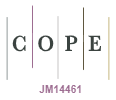Graduates workers and transformations in the workforce
DOI:
https://doi.org/10.5585/eccos.n57.10782Keywords:
higher education, labor market, gender inequality, racial inequality.Abstract
The increase in years of study plays an important role in formulations about opportunities in the labor market and also about the chances of social mobility. This paper aims to discuss to what extent an increasing number of graduate workers corresponds to a greater allocation of the workforce in jobs that require higher education. The analysis of this relationship is particularly significant in the current scenario when substantial expansion of tertiary education and profound structural changes in the labor market are taking place. The text examines the changes in the educational profile of the workforce over the last forty years, taking into account the relationship between years of study and labor market opportunities and / or inequalities. Based on data produced by the Brazilian Institute of Geography and Statistics, the article shows that, despite the growing number of workers with higher education, most of this group is not employed in a job that is compatible with their qualification, indicating an increase in the graduation rate for posts that do not require this level of education. The results also show that access to higher education and the Brazilian labor market remain marked by significant gender and color / race inequalities.
Downloads
References
BILLS, D. The sociology of education and work. Oxford, Blackwell Publishing, 2004.
CARROLL, D.; MASSIMILIANO, T. Job search as a determinant of graduate overeducation: Evidence from Australia. IZA Discussion Paper n. 7202, February 2013.
COHN, E; KAHN, S. The Wage Effects of Overschooling Revisited. Labour Economics, 1995.
COLLINS, R. Functional and Conflict Theories of Educational Stratification. American Sociological Review, Vol. 36, No. 6.,1971.
DAVIS, A. Mulheres, raça e classe. São Paulo: Boitempo, 2016.
DOLTON, P.; A. VIGNOLES. The incidence and effects of overeducation in the U.K. graduate labour market. Economics of Education Review, p.179-198, 2000.
GONZALES, L. E a trabalhadora negra, cumé que fica? In: RIOS, Flavia.; LIMA, Márcia (org.) Por um feminismo afro-latino- americano. Rio de Janeiro: Zahar, 2020.
GREEN, F., ASHTON, D., BURCHELL, B., DAVIES, B. and FELSTEAD, A. Are British Workers Becoming More Skilled? in Borghans, L. and A. de Grip, (eds.), The Overeducated Worker? The Economics of Skill Utilization, Edward Elgar: Cheltenham, 2000.
FERREIRA, P. G. M.; RAITANO, F. C. Profissionais de nível médio: entre o fazer prático e o conhecimento abstrato. In: RIBEIRO, M. G.; ARAGÃO, T. A. (org.). Transformações no mundo do trabalho. Análise de grupos ocupacionais no Brasil Metropolitano e Não Metropolitano em quatro décadas. Rio de Janeiro: Letra Capital, 2020.
LUCAS, S. Effectively maintained inequality: education transitions, track mobility, and social background effects. American Journal of Sociology , v. 106, n. 6. May, 2001.
MANCEBO, D. Crise político-econômica no Brasil: breve análise da educação superior. Educ. Soc., Campinas, v. 38, nº. 141, p.875-892, 2017
MONT’ALVÃO, A. A dimensão vertical e horizontal da estratificação educacional. Teoria e Cultura, v. 11, n.1, jan./jun., 2016
ORGANISATION FOR ECONOMIC CO-OPERATION AND DEVELOPMENT (OECD). Education at a glance 2020: OECD indicators. Paris: OECD Publishing, 2020
PASTERNAK, S. Empregadores: empresários ou trabalhadores? In: RIBEIRO, M. G.; ARAGÃO, T. A. (org.). Transformações no mundo do trabalho. Análise de grupos ocupacionais no Brasil Metropolitano e Não Metropolitano em quatro décadas. Rio de Janeiro: Letra Capital, 2020.
PEGORARO, G. O perfil social dos policiais rodoviários federais. 2020. 67f. Trabalho de conclusão de curso (licenciatura em ciências sociais) – Universidade Federal Fluminense, Niterói, 2020.
PETRUCCELLI, J. L.; SABOIA, A. L. (org.). Caraceterísticas étnico-raciais da população. Estudo e Análises, n. 2, 2013.
REIS, M. C.; MACHADO, D. C. Uma análise dos rendimentos do trabalho entre indivíduos com ensino superior no Brasil. Economia Aplicada, vol. 20, n.4, 2016.
RIBEIRO, C. A. C.; SCHLEGEL, R. . Estratificação horizontal da educação superior no Brasil (1960 a 2010). In: Arretche, Marta (org.) Trajetórias das desigualdades: como o Brasil mudou nos últimos cinquenta anos. São Paulo: Editora Unesp, v. 1, 2015.
RIBEIRO, M. G.; ARAGÃO, T. A. Transformações no mundo do trabalho. Análise de grupos ocupacionais no Brasil Metropolitano e Não Metropolitano em quatro décadas. Rio de Janeiro: Letra Capital, 2020.
SAMPAIO, H. Ensino superior no Brasil – o setor privado. São Paulo: Fapesp/Hucitec, 2000.
SANTOS, E.; TAVARES, M. Economia política e educação. EccoS – Rev. Cient., São Paulo, n. 47, set./dez. 2018
SENKEVICS, A. S.; CARVALHO, M. P. Novas e velhas barreiras à escolarização da juventude. Estudos Avançados, São Paulo, vol. 34, n. 99, 2020.
SENKEVICS, A. S. A expansão recente do ensino superior: cinco tendências de 1991 a 2020. Caderno de Estudos e Pesquisas em Políticas Educacionais, Brasília, vol. 3, n.4, 2021.
SLOANE, P. J.; BATTU, H.; SEAMAN, P. T. Overeducation, Undereducation and the British Labour Force. Applied Economics, November, 31(11), 1999.
TILLY, C. Durable inequality. London: University of California Press, 1999.
TROW, M. Problems in the transition from elite to mass higher education. Berkeley: Carnegie Commission on Higher Education, 1973.
ZUCCARELLI, C. Análise dos ingressantes no curso de pedagogia da UFRJ a partir de suas trajetórias no ensino médio. In: HONORATO, G; HERINGER, R.(Orgs.) Acesso e sucesso no ensino superior: uma sociologia dos estudantes. Rio de Janeiro: 7 Letras, 2015.
WALLERSTEIN, I. As agonias do liberalismo: As esperanças para o progresso. In: SADER,E. (ORG.). O mundo depois da queda. Rio de Janeiro: Paz e Terra, 1995.
WEBER, M. Economy and Society. Berkeley:University of California Press, 1978.
WEBER, M. Ensayos sobre sociología de la religión. Madrid: Taurus, 1987.
Downloads
Published
How to Cite
Issue
Section
License
Copyright (c) 2021 EccoS - Revista Científica

This work is licensed under a Creative Commons Attribution-NonCommercial-ShareAlike 4.0 International License.
10.1590/dados.2025.68.2.368
10.20336/rbs.879
- Abstract 820
- PDF (Português (Brasil)) 772







